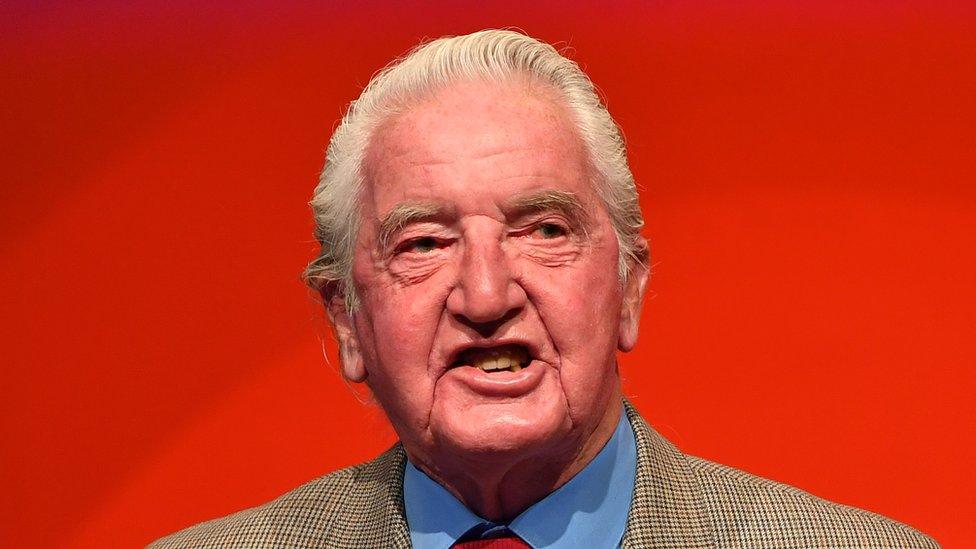Durham North West: The 'no-hope' seat the Tories won
- Published
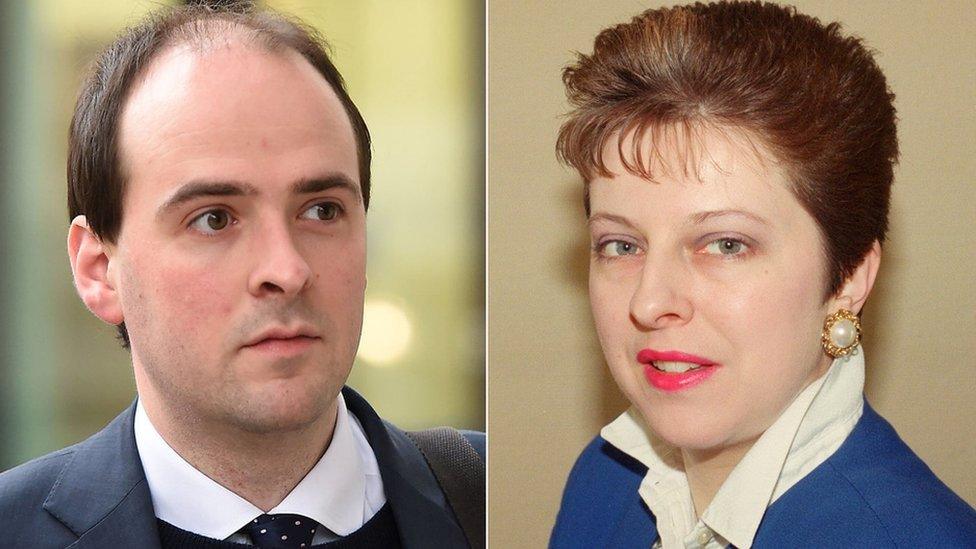
Now and then: Richard Holden succeeds where Conservatives before him, including Theresa May, failed
Among the Conservative Party's haul of astonishing election scalps was Durham North West - a seat the party was not targeting and one it once discounted as impossible to win. What happened?
There are safe seats where favoured candidates can be assured of an easy victory.
And then there are places where rookies have to do their best, hoping to prove their worth for a better seat next time. For the Conservatives, Durham North West was always the latter.
Labour since 1950, it was where Theresa May was sent to cut her parliamentary teeth. As expected, she lost to Labour incumbent Hilary Armstrong by a margin of nearly 14,000 votes.
Richard Holden's victory on Thursday was less dramatic. He beat Labour's Laura Pidcock - once tipped as potential party leader or, at least, successor as deputy - by a more modest 1,144.
The table below shows the full result.

If you can't see the graphic click here, external.
So what happened?
Jeremy Corbyn did, thinks Anne-Marie Kennedy, back home visiting her mother in Lanchester.
"[He] now needs to go," she says. "He needs to get someone in the Labour Party that can run the party properly."
Her mother, Pauline Harrison, is equally unimpressed with the Labour leader, who she believes does not want to unify people or get Brexit done.
"The result is brilliant," she says.
But, if Boris Johnson might find these comments reassuring, Mrs Kennedy has a message for him too.
"I think, Boris, you need to be true to your word for the people," she says.

Former Durham North West MP Laura Pidcock was seen as a potential leadership contender
Matthew Young, from Consett which saw its steelworks close a year into Margaret Thatcher's Conservative government, says Brexit was "the crux" of the election.
"There's a man in power now who has promised to do that and I hope he does it," he says.
But Baroness Hilary Armstrong, who held Durham North West from 1987 until she stood down at the 2010 election, does not believe this was the deciding factor.
She thinks voters were more concerned about Labour's "competence".
"They quite liked some of the promises but they never believed we could deliver them," she says.
"Ordinary working people feel let down. They just feel that the Labour Party has lost touch with them - and I agree with them."
Allow X content?
This article contains content provided by X. We ask for your permission before anything is loaded, as they may be using cookies and other technologies. You may want to read X’s cookie policy, external and privacy policy, external before accepting. To view this content choose ‘accept and continue’.
Allow X content?
This article contains content provided by X. We ask for your permission before anything is loaded, as they may be using cookies and other technologies. You may want to read X’s cookie policy, external and privacy policy, external before accepting. To view this content choose ‘accept and continue’.
Allow X content?
This article contains content provided by X. We ask for your permission before anything is loaded, as they may be using cookies and other technologies. You may want to read X’s cookie policy, external and privacy policy, external before accepting. To view this content choose ‘accept and continue’.
Even the constituency's first Conservative MP, Richard Holden, sees his win in terms of a Labour loss.
"This wasn't a result which was really even about me," he says.
"This was, particularly from a lot of Labour voters spoken to on the doorstep, a real rejection of the way Jeremy Corbyn has been leading the Labour Party."
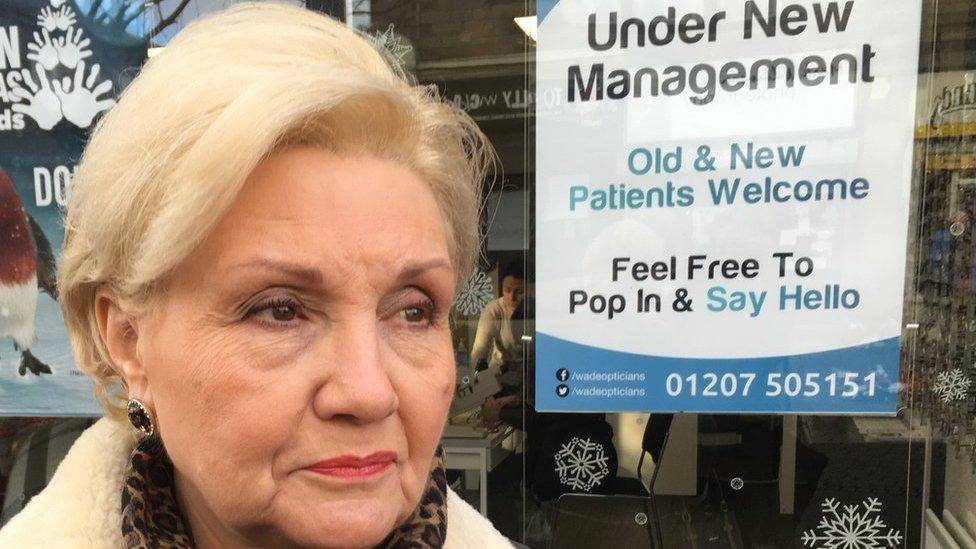
In an ironic echo from Labour's 1997 election campaign, Brenda Spelman from Medomsley thinks things "can only get better"
Among the voters who are shocked at the result, there are plenty looking forward to an emboldened Boris Johnson government.
Brenda Spelman, from Medomsley, is "delighted" with the Conservative win.
"Onwards and upwards," she says. "It can only get better. I think under Labour it would have got worse."

Analysis
By Michael Wild, North East and Cumbria Political Programmes Editor
Until Thursday night North West Durham was the sort of "no-hoper" seat that young ambitious Conservatives looking to cut their political teeth were pointed towards.
A constituency made up of former mining and steel towns such as Consett, it was working class through and through.
At the height of Labour's success in 1997, the local MP Hilary Armstrong took nearly 69% of the vote - more than double all the other parties added together.
One Conservative keen to make her mark at the start of her career was Theresa May, a councillor in London when she travelled north to be selected as Conservative candidate at the 1992 general election.
She came second, with the future Liberal Democrat leader Tim Farron trailing in third. For Mrs May it was a step up the political ladder and by 1997 she'd been rewarded with the far more winnable constituency of Maidenhead.
But things have moved on - and the Conservative Party has proved it's capable of winning even in the former Labour heartlands of the North East.

WHO WON IN MY CONSTITUENCY? Check your result, external
NATIONAL PICTURE: The result in full, external
ALL YOU NEED TO KNOW: The night's key points
MAPS AND CHARTS: The election in graphics, external
LAURA KUENSSBERG: Same PM, new map
IN PICTURES: Binface, a baby and Boris Johnson

Follow BBC North East & Cumbria on Twitter, external, Facebook, external and Instagram, external. Send your story ideas to northeastandcumbria@bbc.co.uk.
- Published13 December 2019
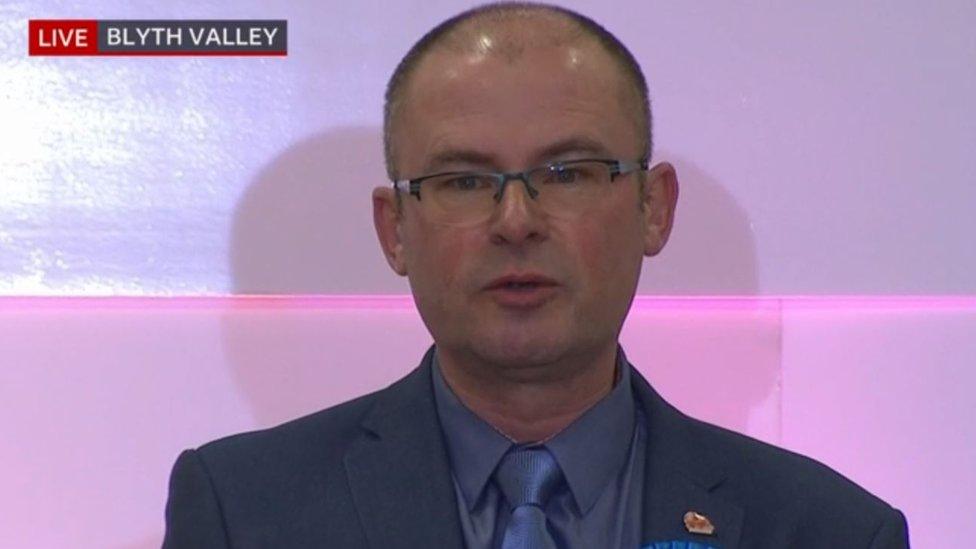
- Published13 December 2019
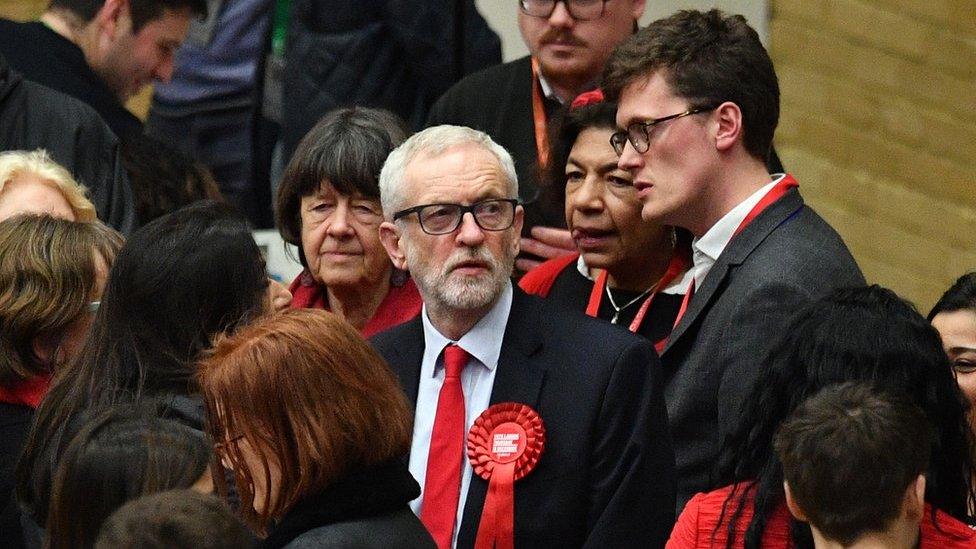
- Published14 December 2019
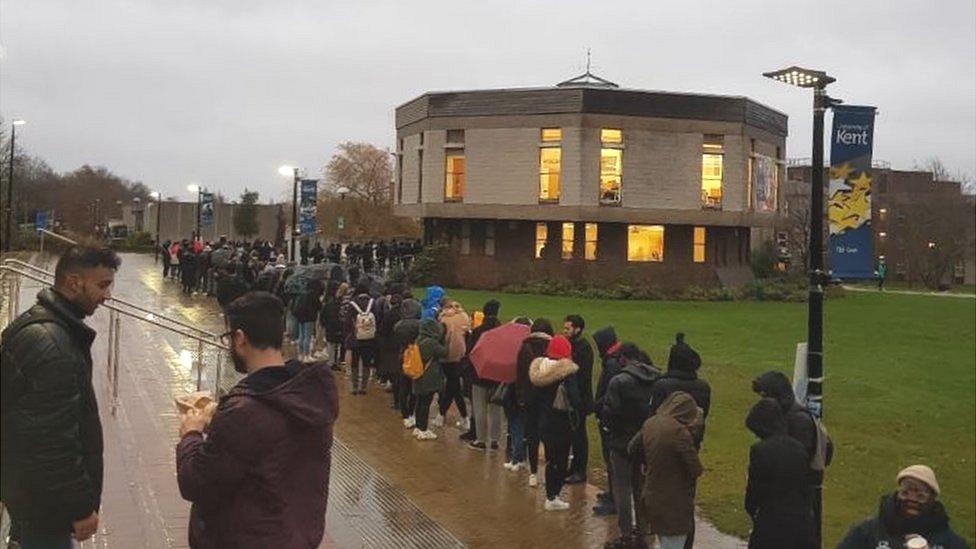
- Published13 December 2019
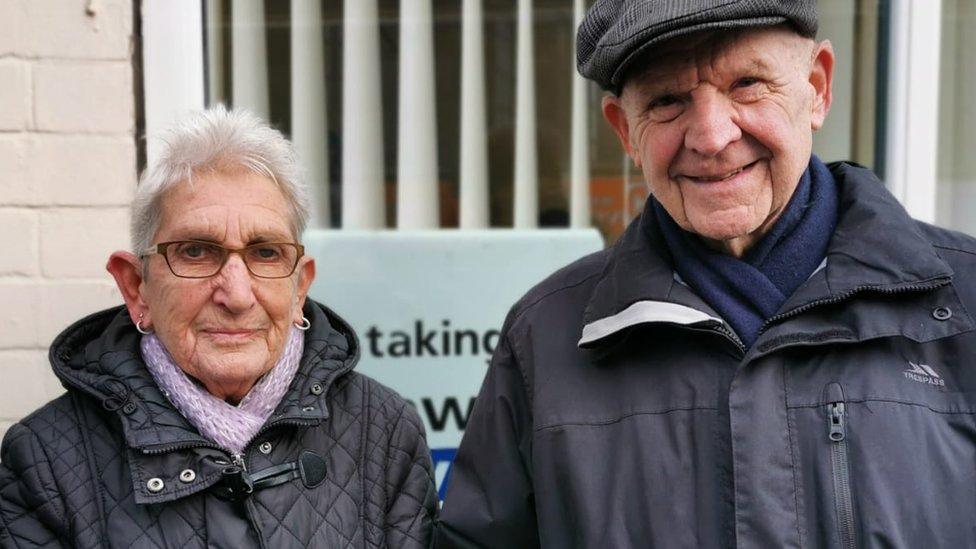
- Published13 December 2019
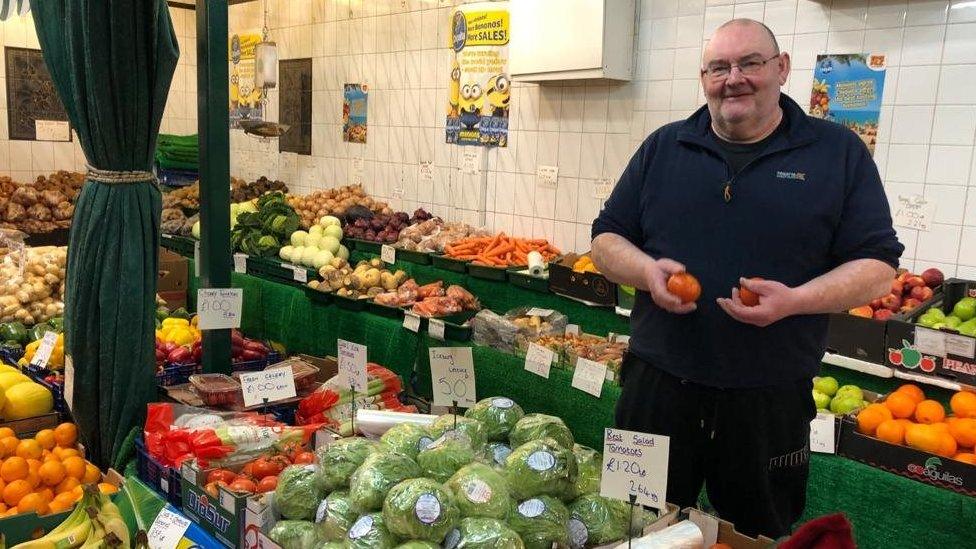
- Published13 December 2019
